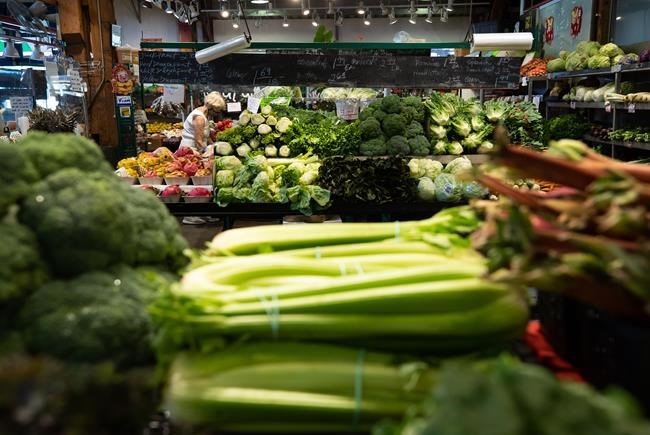Food inflation remains stubbornly high in Canada as grocery prices climbed at the fastest pace in more than four decades last month.
While overall inflation moderated in August, the cost of food purchased from stores was up a staggering 10.8 per cent compared with a year ago.
That's the fastest clip recorded by Statistics Canada since 1981.
Higher prices affected nearly every aisle of the grocery store.
Flour prices were up 23.5 per cent last month compared with a year ago while pasta prices rose 20.7 per cent, bread 17.6 per cent, eggs 10.9 per cent, fresh fruit 13.2 per cent and fats and oils 27.7 per cent.
Prices of items that were once considered affordable substitutes are now rising as well. For example, frozen and dried vegetables were up 14.1 per cent while fresh vegetables increased a more modest 9.3 per cent.
A similar trend appears to be unfolding in the meat department.
"A few months ago when beef and pork prices were increasing significantly you could substitute for chicken," said James Orlando, director at TD Economics.
"Now the opposite is happening where beef and pork price inflation is decelerating and chicken prices are increasing."
Sustained higher prices are prompting Canadians to adopt new shopping habits to save money, a new survey released Tuesday by Dalhousie University's Agri-Food Analytics Lab and Caddle said.
The survey found Canadian consumers are shopping more at discount stores, buying cheaper store brands, using loyalty programs and scouring weekly flyers for deals.
"Food inflation is lingering and is really starting to shape where and how people buy food," said Sylvain Charlebois, professor of food distribution and policy at Dalhousie.
The survey also found nearly a quarter of Canadians have cut back on the amount of food they purchased within the last year because of high grocery prices.
"Some people are actually buying less food," Charlebois said. "There are dietary compromises being made by many Canadians."
Some relief could be in store as easing input costs reduce pressure on food prices.
"With transportation costs and agricultural commodity prices now off their peaks, the trend in food price inflation should start to soften towards the end of this year and into 2023," Andrew Grantham, senior economist at CIBC Capital Markets, said in a client note Tuesday.
Michael Medline, president and CEO of Sobeys Inc., said during an earnings call last week that grocery store inflation may have peaked in Canada as price increases from food manufacturers stabilize.
The number and rate of cost increases being passed along to the grocery chain from food suppliers began decreasing in recent weeks, he said.
Grocers have been widely criticized for high food prices in recent months and posting strong earnings throughout the pandemic.
But Michelle Wasylyshen, a spokeswoman with the Retail Council of Canada, said grocers aren't to blame.
Instead, she said vendors such as food manufacturers, processors and wholesalers have passed along unprecedented price increases to grocers in recent months as they face higher costs from their suppliers such as farmers and importers.
Supply chain disruptions, extreme weather events and the invasion of Ukraine have all pushed up costs this year, Wasylyshen said.
This report by The Canadian Press was first published Sept. 20, 2022.
Brett Bundale, The Canadian Press



